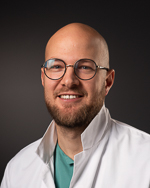Trial Lecture – time and place
See Trial Lecture.
Adjudication committee
- First opponent: Professor Franco DeMonte, Department of Neurosurgery, M.D. Anderson Cancer Center, The University of Texas, USA
- Second opponent: Professor Carl H. Snyderman, University of Pittsburgh Medical Center, USA
- Third member and chair of the evaluation committee: Professor II Hanne Flinstad Harbo, Faculty of Medicine, University of Oslo
Chair of the Defence
Professor II Lars Nordsletten, Faculty of Medicine, University of Oslo
Principal Supervisor
Professor II Torstein R. Meling, Faculty of Medicine, University of Oslo
Summary
Malignancies of the skull base and craniofacial region have traditionally been difficult to control because of the crucial anatomical structures located in this region and the inherent difficulty in gaining access, resecting the tumor, and reconstructing surgical defects. Although new surgical procedures and adjuvant therapies have made treatment feasible for malignancies previously considered unmanageable, it is challenging to define optimal treatment paradigms for these malignancies because of their rarity and their heterogeneity with respect to both histology and site of origin.
The aim of this thesis was to assess the clinical features and multidisciplinary treatment of patients with sinonasal squamous cell carcinoma (SCC), sinonasal adenocarcinoma (AC), olfactory neuroblastoma (ONB) and high-grade craniofacial osteosarcoma (CFOS). In addition, the outcomes of all patients who underwent craniofacial resection, regardless of histological diagnosis, were evaluated.
The majority of patients presented with innocuous symptoms resulting in delayed referral and often locally advanced disease upon diagnosis, challenging adequate treatment. There was a male predominance in all histological entities and several possible risk factors for tumor development were identified (occupational hazard regarding AC, frequent tobacco use regarding SCC, and either primary or familial cancer predisposition regarding CFOS). Long-term follow-up was obtained of all our patients with survival and complication rates compared favorably with international literature. We found that the single most important factor impacting long-term survival is the quality of surgical margins, with radical surgery leading to the best survival.
Additional information
Contact the research support staff.
